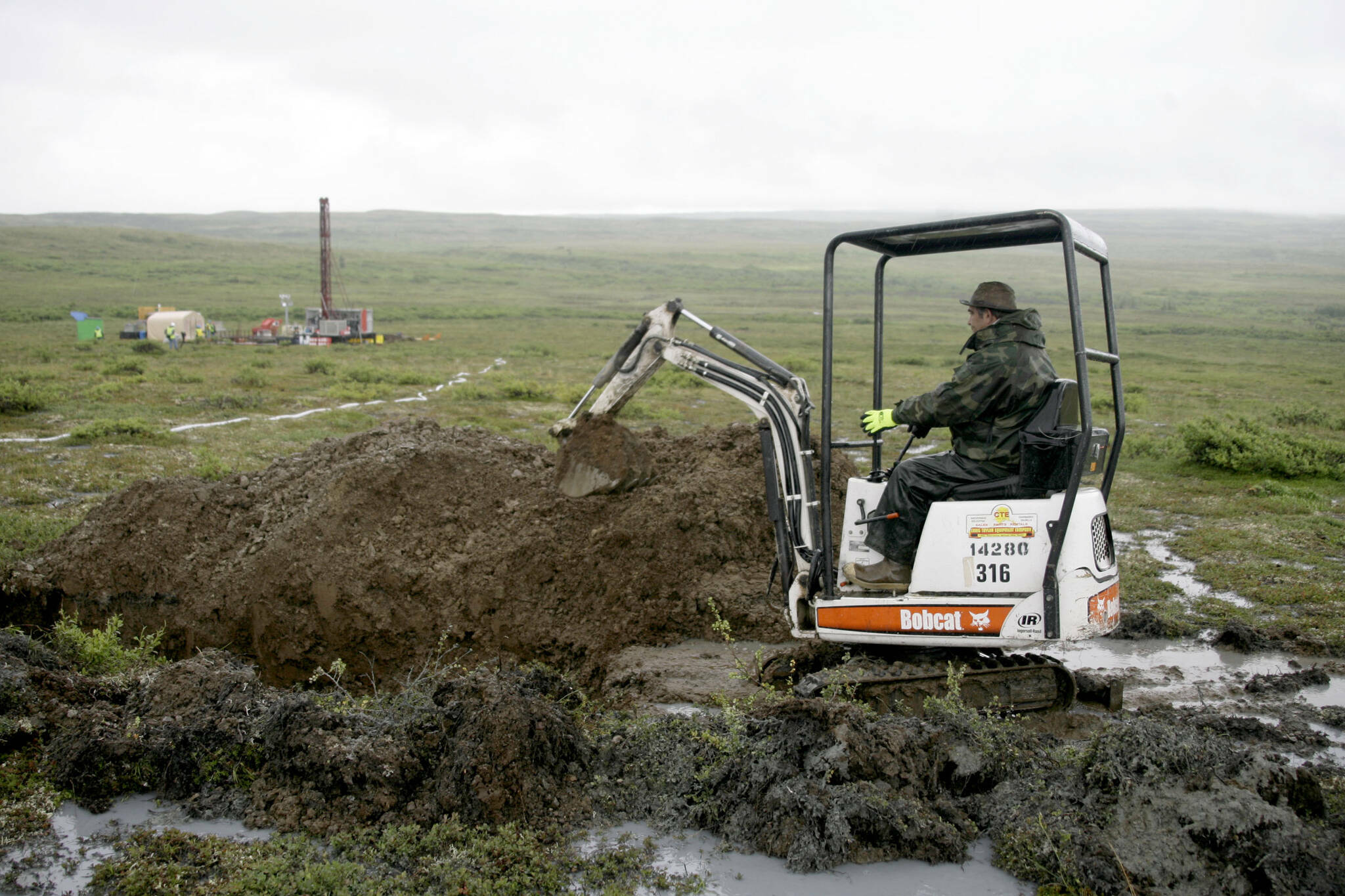“The Supreme Court’s decision to not hear the State’s case directly is disappointing,” Gov. Mike Dunleavy wrote in a social media post last week. He was referring to the EPA’s veto of the Pebble Mine development. After expressing confidence that the state will prevail in the lower courts, he closed the post stating he’ll “continue to fight against this flagrant overreach.”
Dunleavy makes a lot of noise about federal overreach, especially regarding management of the state’s natural resources. In its most exaggerated form, he claims “the Biden administration is focused on bringing Alaska to its economic knees.” But the only way he can spout such nonsense is by making believe every Alaskan living in the vicinity of such projects agrees with him.
The Pebble mine is the best example that’s not true. It’s never enjoyed much local support. During the most recent public comment period, about 2,500 area residents filed statements supporting the protections proposed by the EPA.
In November, the United Tribes of Bristol Bay and Bristol Bay Native Corporation submitted an amicus brief with the Supreme Court in opposition to the complaint Dunleavy filed. They believe “EPA’s restrictions on mining the Pebble deposit are necessary to protect Bristol Bay’s fisheries and Native communities.” Their concerns about the project predate their 2010 request that the EPA perform a Clean Water Act study.
But Dunleavy likes to spin it as a story about outsiders who don’t care about Alaskans.
In the announcement that he was taking the dispute directly to the Supreme Court, he accused “Bureaucrats in Washington D.C.” of “exercising unbridled and unlawful power to choke off any further discussion on this important decision affecting so many Alaskans.”
In November, he told the audience at the Alaska Miners Association it’s “the NGOs in the Lower 48 and Washington” who are trying to “shut it down.”
Neither time he acknowledged collective concerns of Alaska Native tribes, commercial fisherman and others who have long opposed the project.
Pebble isn’t the only project he’s chosen to pretend local opposition is either significant or doesn’t exist. About 90 Alaska Native tribes object to the proposed 200-mile Ambler mining road. It would impact areas which support caribou and moose herds, waterfowl, and fish that are subsistence essentials. But Dunleavy only sees it as part of “America’s natural resource warehouse.”
His administration endorsed a plan proposed by Kinross Gold to haul ore from a gold mine near Tetlin to the Fort Knox Gold mine north of Fairbanks. Every hour, five 95-foot-long long double-trailer trucks, half of them loaded and weighing 80 tons, would drive by 86 school bus stops along the 245-mile route. Construction of passing lanes and five bridge replacements needed to accommodate that traffic won’t be completed before ore hauling begins. Locals who feel their concerns about public safety haven’t been heard filed a lawsuit against the state in October.
Residents of Whale Pass haven’t done that yet. But they’re upset with a timber sale immediately adjacent to their Prince of Wales Island community of less than a hundred people. The 300-acre clearcut would affect everyone. Officials made their objections known soon after they learned about it.
“This sale doesn’t really need to happen,” City Council member Jimmy Greeley argued. “It’s not a major unit of forest. It’s gonna take a lot of money to put the roads in there to get a very minimal amount of trees. And it’s gonna disrupt a lot more than just a regular clearcut of the side of a highway — it’s next to people’s houses.”
Instead of logging prime timber that’s appraised at less than a million dollars, the city requested the state consider selling it for carbon offset credits. The idea came from Dunleavy’s grand plan to earn billions of dollars of state revenue that way. The legislature appropriated $140,000 to get the program rolling. But the administration rejected pursuing that option for Whale Pass.
Alannah Hurley, the Executive Director of the United Tribes of Bristol Bay, got it right when she said “Governor Dunleavy is completely out of touch with the people he claims to represent.” And keeping it that way has been the standard operating procedure whenever he faces local opposition to his political agenda.
• Rich Moniak is a Juneau resident and retired civil engineer with more than 25 years of experience working in the public sector. Columns, My Turns and Letters to the Editor represent the view of the author, not the view of the Juneau Empire. Have something to say? Here’s how to submit a My Turn or letter.

